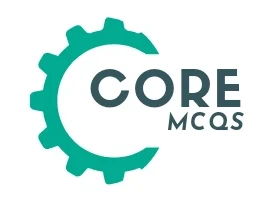Chemistry Chapter 7 Entry Test MCQs
Activation Energy + Catalysis
76. Which is not a characteristic of catalyst?
a. it can’t affect equilibrium constant
b. it accelerates the reaction but does not involve in the product
c. it is specific in its action
d. ΔH of catalyzed and uncatoalyzed reaction is not same
77. Which statement is incorrect about a catalyst
a. Decrease activation energy
b. It is used in a smaller amount
c. It affects specific rate constant
d. Specific in action
78. Catalyst is a substance which
a. increases the equilibrium concentration of the product
b. supplies energy to the reaction
c. changes the equilibrium constant of the reaction
d. shortens the time to each equilibrium
79. In some reactions a product formed acts as a catalyst. This phenomenon is called
a. Autocatalysis
b. Negative catalysis
c. Activation of catalyst
d. Heterogeneous catalysis
80. Glucose is converted in ethanol by the enzyme______ present in yeast:
a. Invertase
b. Urease
c. Sucrase
d. Zymase
81. Catalyst alters, which of the following in a chemical reaction?
a. Internal energy
b. Entropy
c. Activation energy
d. Enthalpy
82. The addition of a catalyst to the reaction system
a. Increases the rate of forwarding but decreases the rate of backward reaction
b. Increases the rate of forwarding reaction only
c. Increases the rate of forward as well as backward reaction equally
d. Increases the rate of the reverse reaction
83. If Ef and Eb are the activation energies for forward and backward reaction respectively. How these can be compared for the exothermic reaction.
a. Ef < Eb
b. Ef > Eb
c. Eb = Ef
d. Ef = Eb
84. The substances that reduce the effectiveness of a catalyst are called
a. Inhibitors
b. Promoters
c. Pro-catalysts
d. Poisoning catalysts
85. A substance which increases the reactivity of enzyme is called
a. Stimulators
b. Promoters
c. Non-activators
d. Inhibitors
86. Addition of tetraethyl lead in petrol is example of
a. Autocatalysis
b. +ve catalysis
c. Anti catalysis
d. -ve catalysis
87. Energy of activation for backward reaction is less than forward reaction for __ reaction
a. Moderate
b. Endothermic
c. Fast
d. Exothermic
88. Which of the following is correct about enzymes?
a. It changes the equilibrium constant
b. It reduces the activation energy
c. It decreases the rate of reaction
d. It increases the activation energy
